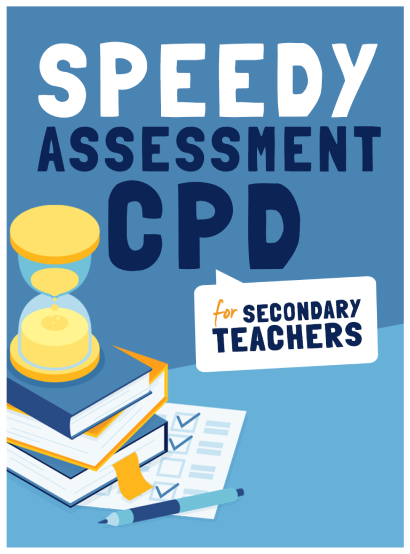GCSEs 2021 – Why formal exams should go ahead this year

In the midst of a public health crisis, we need formal exams more than ever, says Alex Standish…

Following a year of school closures and mass self-isolation for health reasons, students in Y11 and Y13 have experienced unprecedented disruption to their GCSE and A Level courses.
Does this mean that next summer’s examinations should be cancelled? If they are, how can we avoid a repeat of last summer’s ‘teacher-assessed grades versus algorithm’ farce? How should we assess students’ achievements when their education has been disrupted to such varying degrees?
At the time of writing, the government has decided to push the 2021 exams back three weeks, but otherwise leave the existing exam arrangements largely unchanged. Some teachers, at least, aren’t keen on this course of action.
Performativity culture
The campaign group Worth Less, for example – which represents headteachers from 78 English LAs – has argued that without ‘far-reaching change’, the stress of putting this year’s cohorts through exams will lead to a ‘mental health crisis’.
In July this year, Jules White, head of Tanbridge House School in Horsham and leader of Worth Less, stated, “The government must strike a much better balance to maintain standards whilst looking after children’s mental health. The idea that pupils will simply ‘catch up’ on months of lost learning is neither realistic nor workable.”
The view that exams place too much stress on children has been around for a while, and is linked to a growing emphasis on mental health and wellbeing in schools.
However, one reason why exams have become more stressful than they need to be is because schools (albeit led by government) are using results in the wrong way – to measure their collective performance, rather than that of individual students.
This means that students become responsible not only for their own results, but those of the school – and they know it!
In a research paper titled ‘Good Education in an Age of Measurement’ Gert Biesta outlines a ‘performativity culture’ where “Means become ends in themselves, so that targets and indicators of quality become mistaken for quality itself.”
In too many schools, exam specifications have replaced curricula, while ‘teaching to the test’ has become the norm, devaluing the idea that the pursuit of knowledge has an intrinsic value.
Through overzealous exam preparation and coaching children on how best to answer specific questions, teachers are simultaneously removing responsibility for passing exams from students and discouraging them from thinking for themselves.
This misuse of exams puts them into conflict with broader educational aims – a practice that in prior decades would have been viewed by Douglas Holly, among others, as ‘professional cheating’.
Work ethic
We should acknowledge that the system is placing undue importance on students’ exam results, but a better way forward would be to change the system of accountability, rather than cancel exams completely.
We want young people to be in good health, mentally and physically, but concerns with ‘mental health’ have the potential to conflict with the legitimate need to put students under the academic pressure necessary for them to succeed and progress.
One interesting lesson we’ve learned from this year’s cancelled exams is just how much they mattered to the students taking them.
Emma, a GCSE student from Faversham, recalls how she felt after exams were cancelled: “We no longer have that pivot to dedicate our time and studies to… and we’re unable to find other work and areas of study ourselves which give us the same work ethic”.
Another student told me that she’d prefer exams over teacher assessment because, “They provide a focus and an endpoint to concentrate on,” and are ‘fairer’.
The examination itself is an opportunity for pupils to demonstrate what they know, understand and can do. In this sense, they teach young people to take responsibility for their own success and offer a pathway to the next stage of education or training.
While teachers will do their best to ensure students are well-prepared, it’s the individual student themselves who has to revise, prepare and perform in the exam.
Many students don’t actually have a problem with putting themselves under pressure to get the grades in exams that will often define the next stage in their life. Working under pressure is also an important life lesson in the transition from childhood to adulthood.
Moreover, the fact that grades can be such a determinant in young people’s lives is a good argument for why teachers shouldn’t be awarding them.
As teachers, we’ll often invest ourselves in the students we teach. We help them to grow, mature and improve, and therefore want them to succeed.
It’s an attachment that’s inherent to the pedagogical relationship, but one that also makes teachers less objective when it comes to evaluating students’ overall achievement, which is why most educational jurisdictions keep their teaching and examinations separate.
Objective assessment
Objective assessment of what young people know, understand and can do is what gives grades their social value. Employers will look for a foundation of GCSEs as a proxy measure of basic skills and the ability to apply oneself.
So what about those lost months of in-school teaching, and those students studying at home because they have to self-isolate? It’s true that some schools and students have made a better job of working online over the summer term than others.
Independent schools were generally quicker to transition to live online classes, whereas many state schools were initially reluctant to do so due to ‘safeguarding rules’.
But in no year has there ever been a truly level playing field for students. We know that teaching quality and educational resource provision varies between sectors and from school to school, and that it’s not unheard of for year groups to have to contend with disruption to their courses.
Four months before my daughter’s GCSE chemistry exam, for example, her teacher left to go on maternity leave and the school was unable to find a new chemistry teacher. Both school and students had to do their best in trying circumstances.
Yet the fact remains that our current Y11 and Y13 students have all experienced massive disruption to their education, and may yet experience more.
We must decide on the best way forwards, but to suggest that exams place ‘unnecessary stress’ on students right now amounts to an abdication of responsibility for putting young people under pressure to succeed and reach their potential.
My argument is that exams, as summative assessment, are an integral part of education, providing valuable experience of taking responsibility for your own progress. Yes, our current exams must do more to reward independent thought and creativity, rather than regurgitation of content.
And yes, exams aren’t the only way of validating students’ achievements – we should remain open to using a combination of assessment methods, especially at times like these.
However, by showing young people that we value their education enough to sustain a system of education and examination that provides them with a pathway to their future, we teach them a valuable lesson.
That’s what German schools were able to do this past summer, despite similar lockdown restrictions and schools closures.
Alex Standish is an associate professor of geography education, teacher trainer at UCL Institute of Education, and co-editor of What Should Schools Teach? – Disciplines, subjects and the pursuit of truth, 2nd Ed, due for publication in the New Year by UCL IOE Press; follow him at @alexstandish9.












